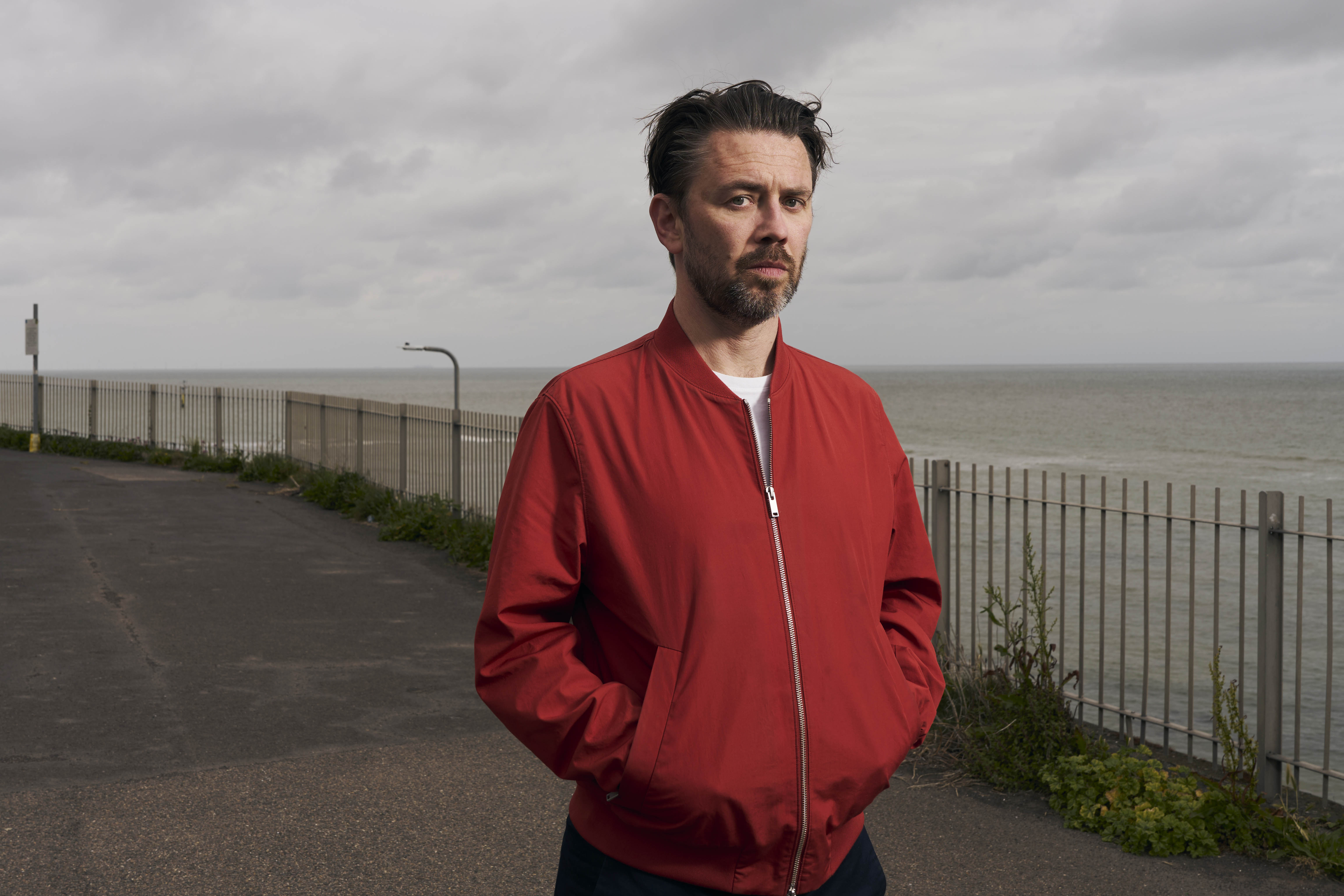Two weeks after my dad died I went to get a haircut so that, at his funeral, I’d at least have the appearance of someone not falling apart. It was the hairdresser who first told me the story of the disappearing woman. She was a reliable font of prime-cut local intrigue, but this one was different. It would bring on an obsession that would help me navigate my obscurant, muscular grief. It would consume the next year of my life.
Caroline Lane moved into Flat 9, Saltwater Mansions, in the summer of 2005. Saltwater Mansions is a quietly breathtaking block of flats on the Margate coast and Caroline was the perfect neighbour. She never missed a mortgage payment. She always paid her bills. She didn’t throw debauched parties or have a dog that shat all over the car park.
The last time any of the neighbours saw Caroline was in May 2009. Since then they’d tried to find her lots of times, but even the private detectives they hired drew blanks. There was no evidence of a crime, no trace of her online, and nobody could give any reasonable explanation for her absence; nor for how a series of automated bank transfers maintained a life she didn’t appear to be living. Sadder still, no one ever came looking for her. In fact, there wasn’t a single other person whose life seemed to change in any way at all when Caroline Lane, 45, vanished from the centre of her own. The idea that Caroline’s story might disappear with her – that she might be forgotten – fired in me a deep unease. It was one that felt painfully familiar.
My dad, Keith Whitehouse, was diagnosed with cancer near the beginning of the pandemic. The disease spent the months he couldn’t get a doctor’s appointment ransacking his organs. When my mother told me, I cried in a Margate park where I’d watched him play with my children. There were no planes. It felt like a slight that the sky should stay so untroubled.
As a boy I’d been unaware that my dad had had a life before I was born. As a teenager I’d been disinterested. As a young man I’d been too wrapped up in the construction of my own future to trouble myself with his past. But since becoming a father I’d been bothered by the idea that my sons might one day have questions about his life that I would not be able to answer. Dad believed in actions over words. He had a visceral dislike of talking about himself, fiercely adamant that his story was not worth telling, as admirable as it could be frustrating if you wanted to know what it was. I had a terrible recurring dream that, when he died, I would not be able to write the eulogy he deserved. I’d begun to grieve the conversations we hadn’t had, to regret that I didn’t know how to start them.
I’d begun to grieve the conversations I hadn’t had with my dad, to regret that I didn’t know how to start them
I’d begun to grieve the conversations I hadn’t had with my dad, to regret that I didn’t know how to start them
The moment my haircut was finished, I left the salon and marched straight up the esplanade to Saltwater Mansions, hoping to discover Caroline’s story for myself. There was a heatwave that day, a sun the orange of blood in yolk. Though I was unaware that I was about to fall down the rabbit hole of Caroline Lane, I was soon to find that, in the depths, I would not be alone. Since her disappearance, she had become the subject of an obsession among her former neighbours. They were all, in their own ways, powered by loss, and I was their newest member. They shared with me what they knew in case, to an outsider, it finally began to make sense.
By spring 2020, Caroline had fallen into significant arrears on communal payments for things like fixing the drains that couldn’t be paid by direct debit. Eventually, the other residents had no choice but to force the sale of her flat to recoup the debt. After going to court and satisfying a judge that nothing more could be done to find her, the neighbours gathered at Caroline’s door. Footage exists of this moment. Five people bound by bricks, mortar and fascination, their fluttering, nervous breath.
Caroline’s flat was impressive. There were high-ceilinged rooms stuffed with elegant furniture, wardrobes crammed with designer clothes and shelves that bowed with books. But the more they investigated, the eerier it became. Food rotted in the fridge. Bedsheets still held her shape. Plates sat in cold, dirty water, like a pensioner who couldn’t get out of the bath. Caroline’s flat was a perfectly preserved time capsule of the day she vanished. What struck them most was that there was no dust. There was no dust because there’d been no skin.
Related articles:
Over the months I spent at Saltwater Mansions talking to residents past and present, trying to piece together who Caroline was, I began to notice this pattern repeating: what was most illuminating was often not what was there, but what wasn’t. In the huge pile of unopened mail that formed a knee-high snowdrift behind her front door, she hadn’t received any birthday cards, Christmas cards or letters from loved ones.
The first letter shoved through her door after she was last seen were the minutes to the Saltwater Mansions management company’s AGM, which she had attended only days before. Contrary to the usual pageant of consensus that typically characterised these meetings convened to discuss such matters as repairing the fire escape and the loud techno blasting out of flat 15 in the early hours, Caroline raised objections to every single item on the agenda. The minutes record her being so rude and obstructive that the second envelope slid through her letterbox after she vanished contained written notice of the secretary’s resignation, citing Caroline’s unreasonable behaviour, and signing off with a sentence so stinging you can almost hear his hackles in flux: “In continuing in his role, the treasurer has my profound sympathy.” Not that Caroline ever read it. The letter sat unopened on her doormat for the next 13 years.
Newsletters
Choose the newsletters you want to receive
View more
For information about how The Observer protects your data, read our Privacy Policy
Desperate to paint a picture of Caroline in my head, I abandoned the work I was meant to be doing to track down anyone who might have known her. But as all leads led nowhere, it slowly became apparent the only quality I could be sure of was her elusiveness. Caroline Lane, I feared, was someone I would never really know, and her memory was one I could never do justice to.
I was there when a consultant came to update my dad on how the chemotherapy was going. He sat on the bed and pulled his mask down over his chin. His face was kind, or I wanted it to be. He held Dad’s hand and told him he had six weeks to live and Dad said OK, as though it was OK. The doctor said sorry and left and Mum was crying. I told Dad I was sorry. He asked what for. I told him I was sorry that everything was so terrible for him. “Don’t worry about that,” he said. He didn’t want to talk about himself. His skin clung to his bones like wet silk.
When he came home from hospital we helped him into bed. He was light, his arm round my neck, thin like a boy’s. The journey had exhausted him. I asked if he wanted to sleep and he said in a minute. He asked me how my children were. I told him they were fine. Go to sleep, I said. I’d brought my old Dictaphone in a brown leather case. When he woke up, we’d have six weeks. I’d ask him, and preserve everything there was to know.
He didn’t wake up. We knew but never knew we were running out of time.
Every time I returned to Saltwater Mansions, I thought about all the things my dad would never tell me now. Sometimes I wondered what he might say if he knew how his loss had brought me here, searching for the truth of a woman’s story in case something else was lost as valuable as him, or how it helped me traverse the sheer face of grief since he had gone. He probably wouldn’t have wanted to talk about it. Every time I left I thought of him, knowing I’d not be able to stop coming back until the story of Caroline Lane was told.
David Whitehouse is the author of Saltwater Mansions: The Woman who Disappeared and Other Untold Stories, published by Phoenix on 12 June at £18.99
Photograph Suki Dhanda


